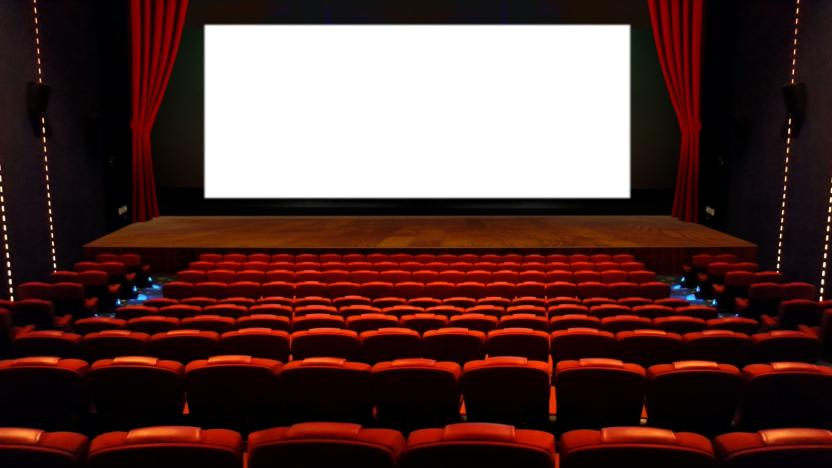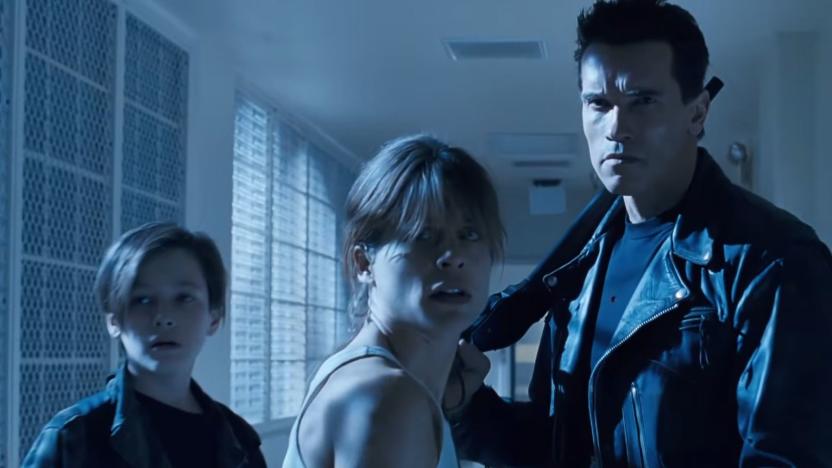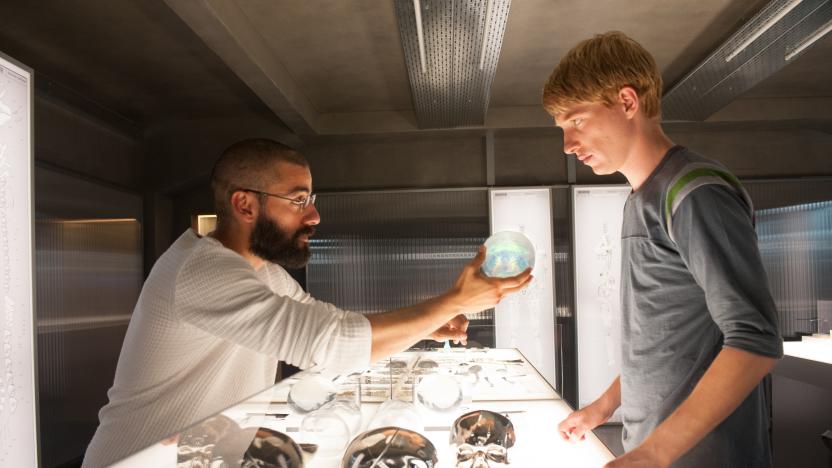cinemas
Latest

MoviePass may return in 2022
Cofounder Stacy Spikes plans to revive the service next year after buying back the company.

My love/hate relationship with streaming movies early at home
For The Invisible Man, Universal Pictures decided to go the VOD route. It's hard to argue against the convenience of these early VOD releases, which also includes Universal's Emma, The Hunt and Disney's Onward.

MoviePass founder's next big idea: Free movie tickets for watching ads
Stacy Spikes just wants to get people to the movies. As the co-founder and CEO of MoviePass, he helped popularize the idea of cinema subscriptions. (This was before MoviePass brought in a new CEO and his ambitious -- but ultimately unsustainable -- $10 monthly plan.) As he pondered his next endeavor, he started noticing just how many ads we're subjected to in theaters, something that seems especially egregious as ticket prices keep climbing. And that's not counting the product placement we see in films.

MoviePass failed so cinema can live
In the blink of an eye, MoviePass went from being one of the hottest startups to a textbook example of how not to run a company. Its $9.95-a-month plan, which let you see one movie per day, launched last year, followed by explosive growth. But MoviePass was unsustainable from the get-go, and its success led directly to a slew of recent issues: surge pricing for popular showtimes (which often seemed randomly assigned); an outage after the company literally ran out of money; and excluding some of the most anticipated titles of the year, like Mission Impossible: Fallout. Now, instead of raising its subscription price, MoviePass is limiting customers to three movies a month.

Dear Hollywood, we don’t need classics like 'Terminator 2' in 3D
Terminator 2: Judgment Day is one of the greatest films ever made. So what's the point of adding a 3D veneer to bring it back to theaters? Not much, it turns out. In exchange for a slight touch of artificial depth, I found the remaster darker and occasionally blurrier than the original. But really, this isn't anything new. I had a similar experience a few years ago with the re-release of Jurassic Park -- another classic film that was brought back to theaters just for the novelty of seeing it in 3D. As I sat in Brooklyn's mostly empty Alamo Drafthouse theater this week, I couldn't help but wonder: When will Hollywood realize these 3D re-releases are a huge waste of time?

MoviePass unveils new prices, starting at $15 a month
MoviePass's new CEO, Mitch Lowe, has made good on his promise to reach a $20 plan. The cinema subscription service now starts at $15 a month for two films in markets where tickets are relatively cheap (read: far away from large cities). In slightly more expensive areas it'll start at $18 a month for two films, and in the most expensive markets like NYC and LA, it starts at $21 a month. Sure, that's far more limiting than MoviePass's original all-you-can-eat plans, but Lowe says he's hoping to attract subscribers who only have time to hit the theater a few times monthly.

The UK's highest-ever box office takings don't tell the full story
All told, 2015 was a pretty good year for UK cinemas. Fuelled by blockbusters such as Star Wars: The Force Awakens and Jurassic World, theaters took £1,240 million over the 12 months -- a new record, and 17 percent higher than 2014. With so much money in the coffers, you would think that cinema attendances were healthy too. Well, yes and no. Ticket sales hit 171.9 million, which was a 9 percent increase over the previous 12 months. Look back at the numbers since 2000, however, and the trend is relatively flat. A high of 175.9 million in 2002, a low of 156.6 million in 2006, another peak of 173.5 million in 2009. You get the idea.

Super League Gaming brings competitive 'Minecraft' to American movie theaters
Arcades used to be the go-to place for gamers to come together and test their skills in friendly matches. While quarter-fuelled cabinets have fallen in popularity, the online eSports scene has exploded, resulting in huge tournaments and sell-out crowds. Super League Gaming, despite its name, wants to recreate the social, recreational arcade atmosphere for a new generation of games and players. For starters, it's planning a 28-city tour in the US, where it'll be hosting Minecraft competitions inside 80 AMC, Cinemark and iPic movie theaters. The game isn't exactly known for its competitive multiplayer, but organisers hope to stir up some friendly rivalry with PVP matches and casual building sessions.

Toy Story 3 in 4K 3D: does higher-res equal higher enjoyment?
We'll be straight with you, the Engadget staff is somewhat ambivalent about 3D: some of us believe it to be a gimmick, while others see it as a legitimate advance in film technology that takes our movie enjoyment up to its next logical station. What you won't find us disagreeing on, however, is that everything looks better when it's taken to a 4K resolution. Sony has been busy rolling out its new 4K projectors across the US and Europe, and invited us yesterday to see Toy Story 3 in some ultra-advanced 4K 3D. Because of it having four times the resolution of the more conventional 2K stuff -- which Avatar, the big 3D (and 4D) flagship, was delivered in -- Sony's projector is able to deliver both the left- and right-eye frame on the screen at the same time, rather than having to alternate them in hummingbird fashion. That should ideally provide a more pleasurable overall experience for the viewer and ultimately pay off for the company in more people ponying up more cash for the extra goodness. So, we moseyed along to an Apollo Cinema in central London -- the chain has already installed Sony's hero 4K projectors in 11 of its venues -- and all you'll need to do is click past the break to see what we thought.


